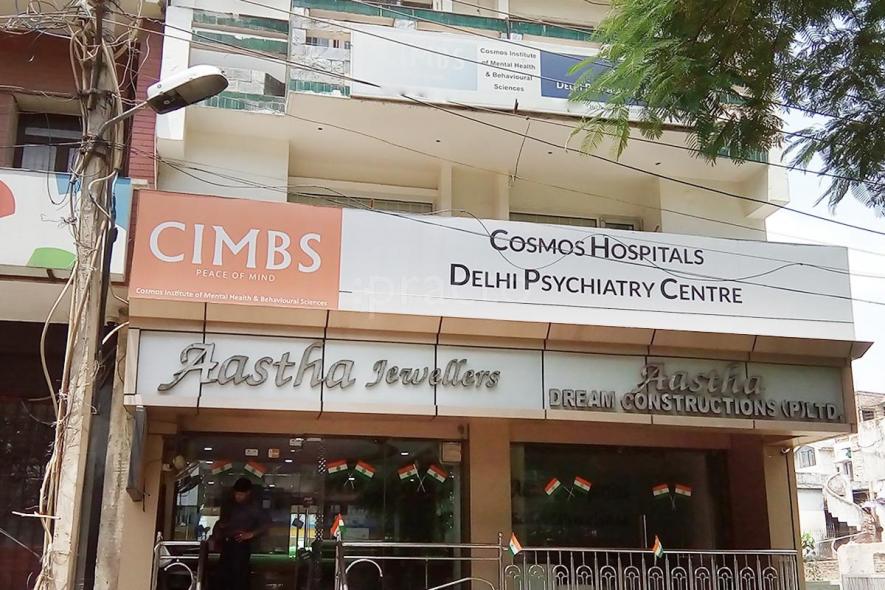Will A Code of Ethics for Psychiatry Protect Both Doctors and Patients from Undue Harassment?

The High Court of Delhi on April 18 delivered a Judgement on a habeas corpus petition which highlighted the lack of a code of ethics in mental health care in India. The petition had been filed by Dr Sangamitra Acharya against the state government, the police and Cosmos Institute of Mental Health and Behavioural Sciences (CIMBS). The case involved a young woman – who had attained the age of majority – being confined to a private mental clinic on an application made by her parents. The Court had ruled that her admission as an in-patient was wrong and violated her fundamental rights.
On June 11, 2017, Z – her name was withheld in the Judgement for her privacy – was pinned down, sedated and abducted from her teacher's home by her family and an ambulance crew. The head constable who was present in plain clothes obviously did not see anything wrong with what unfolded before his eyes. She was taken to CIMBS where her family had already made preparations for her admission under section 19 of the Mental Health Act, 1987. Section 19 covers exceptional circumstances where a patient may be admitted for their own benefit by a guardian. What emerged from the Judgement was that she wished to pursue a career in music. Her family was against this decision and had previously attempted to have her declared mentally unsound, but the Metropolitan Magistrate dismissed their attempt. In the present case, her parents had used the previously dismissed doctor's opinion to convince CIMBS, the ambulance service and the police to allow them to take their daughter away. The Court took cognisance of the roles played by all four parties. What is relevant in this regard is the role of CIMBS.
Section 19 of the Act lays down the procedure for admitting mentally ill persons under certain special circumstances. Under the first subsection, an application must be submitted by a friend or a relative of the person, the medical officer in this regard must be satisfied that admission is in the interest of the person. The proviso to this subsection states that a person admitted through this provision cannot be kept as an inpatient for more than 90 days unless other sections of the Act are complied with. Subsection 2 provides that an admission under this section must be accompanied with two medical certificates, one of which must be issued by a government medical practitioner. An exception to this is made in circumstances where the medical officer is satisfied that the situation does not require it and the certificates can be issued by two in-house practitioners. In the third subsection, a provision is made for the person to be discharged on an application to a Magistrate.
The Court found that the medical officer on whose opinion Z was admitted did not examine her in person and instead relied on what was relayed to him. However, as he was not physically present, he had delegated the duty of admission to his colleagues. The file notings provided to the Court by CIMBS did not contain any opinion that the requirement of a medical certificate from a government practitioner could be dispensed with. The Court also observed that the application made by Z's father to CIMBS did not follow the prescribed format under Rule 25 of the Rules to the Act. The application did not even contain signatures of witnesses as mandated by the Rules. The medical certificates issued were in a pre-printed format. Strangely, the pre-printed medical certificates had even pre-printed the diagnosis of the doctor. The only parts left to the doctor to fill out were the patient's name, address, illness and symptoms. The certificate was reproduced in the Judgement.
What is important for an admission in under section 19 is that the patient must be unable to express their willingness to be admitted. Though by the end of the day the doctors who issued the medical certificates had come to the opinion that she did not need to be admitted, the damage had been done.
What this sequence of events shows is the need for a standardised procedure to protect both doctors and patients. The doctors did not strictly adhere to the procedure laid down in section 19 of the Act. However, the opinion they reached by the end of the day was that Z did not require to be admitted as an in-patient. The ethical issue here is whether a doctor can admit a patient before a diagnosis. The Court, taking cognisance of the fact that the Code of Medical Ethics Regulations issued by the Medical Council of India (MCI) does not cover psychiatry, left it to the MCI to formulate a code of ethics for psychiatrists.
However, what is interesting in this case is the name of one of the doctors, Dr Sunil Mittal. Despite being a 'celebrity' psychiatrist who has given a TED talk and held several senior positions, this is the second case in which his name cropped up on ethical grounds. A 1997 Order of the Supreme Court has mentioned him in relation to a petition filed by Anamika Chawla. In this case, he had issued a medical certificate stating that Chawla be admitted to Delhi Psychiatry Centre (the address is the same as CIMBS). Chawla's contention before the Court was that neither he nor the other doctor who issued a certificate had actually met her and personally assessed her. The Order was passed in quashing a Metropolitan Magistrate Order that she be assessed and admitted.
What is clear is that there is an issue here with doctors diagnosing without meeting the patient. Dr Indu Prakash Singh Facilitator for CityMakers Mission International and President of Forum Against Corruption & Threats (FACT) has started an online petition to have Dr Sunil Mittal, Dr S. C. Malik, Dr Raj Mishra, and Dr Sameer Kalani debarred by the MCI. All the names mentioned in the petition were involved in either both or one of the cases mentioned.
The MCI was emailed regarding the code of ethics for psychiatry, but they have not replied. The story will be updated when they do.
Get the latest reports & analysis with people's perspective on Protests, movements & deep analytical videos, discussions of the current affairs in your Telegram app. Subscribe to NewsClick's Telegram channel & get Real-Time updates on stories, as they get published on our website.
























